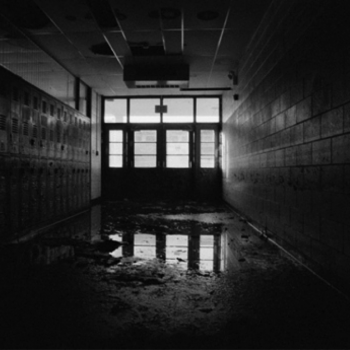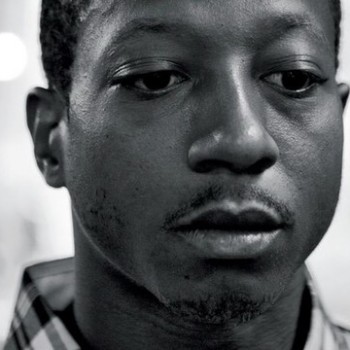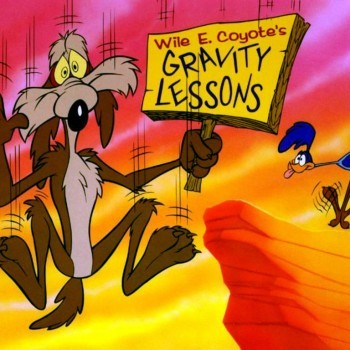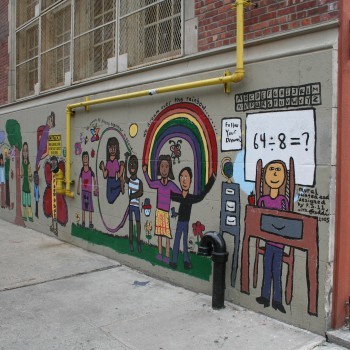Jose Vilson's Blog, page 31
August 23, 2015
The Blackout (Why #BlackLivesMatter Owes Nothing To You)

“If I woulda known what I knew in the past, I woulda been blacked out on your a …” – Kanye West, “Black Skinhead“
At any given moment, any given rally, for any presidential candidate, a set of protestors under the Black Lives Matter umbrella could bumrush the stage and lay out a list of names, stymieing the rah-rahs of the onlookers and bystanders in the crowd. The focus on Senator Bernie Sanders and former Senator Hillary Clinton have been particularly poignant because, for decades, the Democratic Party has taken the vote from people of color for granted, as if abstaining from the political process isn’t an option. Yet, as Kelly Wickham is quick to remind us, the BLM movement doesn’t actually have to do the bidding of any particular party. The means and ends are justified because the end is equity in survival.
So when my name was invoked in a discussion around the intersections of #BlackLivesMatter and public school advocates, I laughed because the education space has a similar set of leaders vying for the front of the discussion. I’ve seen a crowd of so-called white progressives converge on my blog the last time I pleaded with them to decentralize their narrow concerns and fight for equity by putting race, class, and gender in the center of the struggle for educational equity. For what it’s worth, it’s the same group that will have a visceral reaction to hearing that the New York State opt-out movement was mostly suburban and white, but did nothing to highlight the cases across America where students of color opted out.
In a few blogs I’ve read this year, the authors of certain posts (I’m not giving them views) thought it was high time for the leaders of the BlackLivesMatter movement to become allies with pro-public education folks and fight against the ostensible Gates / Walton / Broad / TFA coalition and set America straight. The comments on these posts were rife with quandaries about the leaders of the BLM, their intentions, and dubious connections to the very foundations public school advocates profess to hate.
Here’s a sampling: continue reading
The post The Blackout (Why #BlackLivesMatter Owes Nothing To You) appeared first on The Jose Vilson.







August 20, 2015
Mission High and the Full Beauty of the World

Let me first recommend everyone read Kristina Rizga’s Mission High: One School, How Experts Tried To Fail It, and the Students and Teachers Who Made It Triumph (Nation Books, 2015). I would be remiss if I didn’t tell you how many education books I’ve read in the last few years that namedrop the infamous A Nation At Risk report at the catalyst for the current status quo of public schooling, and how the mere mention of T.H. Bell or David Gardner usually knocks me out.
What sets this book apart from those books is its fascination and attention to the voices of the students, teachers, and principal. The reader is pulled into the lives of the inhabitants of Mission High School in San Francisco, CA, rooting for their uplift, drowning in their frustrations. At some points, the reader forgets that Rizga’s narrating the book, letting the understandings of the people she interviews take over her writing. She also comes from a sect of white education journalists who can deftly write about race with a three-dimensional nuance, sans platitude, stereotype, or self-indulgence.
But I don’t really do book reviews. I write essays.
As such, I’d like to key in on one of the students she interviewed, George, and the spark he left in my mind here:
George used to think that people who think slowly are not smart, but close work with his classmates made him realize that rushing to answers is not always the best way to solve problems. It was often the slower thinkers who forced everyone to deliberate on the relative advantages of various ways to get to the answer. ‘Human brains are too weak to appreciate the full beauty of the world, and rushing through any process makes you miss out on important parts,” he says.
Even without context, you can tell this student keyed in on something that few policy wonks tap into, and that’s the idea of what an education is. continue reading
The post Mission High and the Full Beauty of the World appeared first on The Jose Vilson.







August 18, 2015
The Prison of the Mind [On Kalief Browder]

“You see, mama? This is why, sometimes, I’d rather just be in jail. It’s much easier than this. This is too much.”
Richard had just passed away, a victim of his own addiction. The syringe, found seven stories under his lifeless carcass a few hours afterward, had injected a high-inducing substance mixed with an adulterated chemical that slowly switched his nervous system off. His brother was either speaking jibberish or speaking from his heart depending on the listener’s perspective. I’ve heard it too many times, but this time was particularly poignant.
Richard’s brother preferred the normalcy of the gated cells to the uncertainty of what the rest of us consider real life.
Prior to his passing, I hadn’t seen him in almost a decade. It had been so long that I forgot what he actually went to jail for. We lived a few buildings apart, my building facing the ave and his building facing the river. As youth, I remember him as a young man with ambitions with enough charisma to make us believe he could do anything he put his mind to. As time passed, though, this ambition had him bobbing and weaving the very streets I faced. He landed in jail for a crime we weren’t told about, and he wouldn’t tell us after he got out. Their humanity is erased, and criminality subverts them as human beings.
When they pass, they’re not seen as victims even as the current they’re swimming against needs more than wooden oars and life jackets.
So when I heard of Kalief Browder’s passing, I thought back to my cousins who’d ever done a stint in jail, and the offerings they needed to make to the jail gods to make it to their release date. The justice system doesn’t just fail our system from the point of entry into steel-gated rooms. It starts from birth, and having to swim twice or thrice as hard to meet what the rest of the country considers “normal.”
This isn’t just an urban affliction either. It’s the living environments our country continues to allow, and, in many ways, propogated. Our environments are not just on purpose.
Educators have a large task ahead of us, particularly with a social justice conscience. Too many folks across different racial spectra like to say, “Teachers think because kids are poor and / or are of color, they can’t learn.” I can’t contradict that because we do have people who don’t want kids to learn anything above multiplication. At the same time, socially just education requires us to do everything we can because we know life isn’t fair. We lift because we see the Kalief Browders in our classrooms, so full of life, and yet facing immeasurable odds. We can only hope that we’ve done everything we can to help them reach their potential even as the rest of society does not believe in them.
Kalief Browder was, by many measures, college and career ready, too. Yet, that experience in jail, the incongruous waiting to be unburdened for a crime he never committed, the pseudo-apologies upon release works exactly as it’s supposed to. It’s meant to disorient, dehumanize, and erase.
I wish to remember Kalief the way I remember all my cousins who’d been to jail as people who went through jail and people still. It leaves me wondering if remembering their full humanities might have kept them here.
continue reading
The post The Prison of the Mind [On Kalief Browder] appeared first on The Jose Vilson.







August 16, 2015
We Have A Long Way To Go With Testing, But Where To?

I’m opting out of the latest testing results discussion.
Columbia University professor Aaron Pallas astutely observed that every city and state politician came to their respective podiums with some variation of “We have a long way to go” as part of their statements about the newly released New York State test scores. Considering how virtually useless they are on an instructional level, it’s amazing how much passion in all directions we’ve ascribed to these numbers. The New York Times lamented the opt-out movement in New York State may have rendered the data useless, or at least may have skewed it in one direction or another.
Um, yes. I suppose anything can skew any set of data, man-made or otherwise. Mass opt-outs are another lever by which some parents provide feedback to unresponsive school systems.
To wit, I know of schools (meaning, I looked at the numbers) who changed their whole curricula, from standards to text books, and only increased their test scores by a few percentage points. I know of schools who used their resources better than others, had better funding per student vis-a-vis donations, or simply had better leadership with a vision for how schools ought to work. Everyone tries to make their case for growth with this undercurrent of urgency, not for student learning per se, but to assure that accountability monsters won’t come at their doors.
In this city, as with so many places across the nation, we’ve grown accustomed to educators as litigators. Professionals in such an uncanny wrong way.
The reasons “we have a long way to go” seem so half-baked is that we can have a long way to go on a hiking path or a long way on a treadmill. We can run miles on either, but only one of those leads somewhere. In the same way, we can keep aiming for higher test scores as a measure for student learning, but if we only work on testing the tests, and not on the entire experience of our students as human beings, then we won’t see much movement.
The evidence is mounting that, without a foundation of agency, pedagogy, and equity, school reform means nothing.
That’s why, when I speak of hope in schools, I’m driven to the intangibles of my students’ schooling experiences. Where is the passion, creativity, and curiosity in their approach towards the material? That healthy mix of “Let me teach you what you don’t know” and “You can do this without me” often makes for the best environments in a class. I sincerely hope that we can move past overjustifying pseudo-scientific methods like standardized testing and get more thoughtful about how students, particularly our most disadvantaged children, actually learn past bubble sheets.
Some folks feel like, before No Child Left Behind and the deluge of data rained / reigned upon our school districts, we didn’t know which schools were being underserved. This is why I’m opting out of the narrative. At least until we get clarity as to where we’re actually going.
Do you know?
continue reading
The post We Have A Long Way To Go With Testing, But Where To? appeared first on The Jose Vilson.







August 11, 2015
#TheEmptyDesk In Our Classrooms [On Social Media and Educational Activism]

A year ago, protestors all across the country elevated the souls of Mike Brown, Eric Garner, and so many others who’d been brutally murdered at the hands of their respective local law enforcement officials. I was struck by the vociferous activism of this generation of people of color, spurned only a decade before by comedian-turned-culture pundit Bill Cosby. The tide that once ebbed downward had risen again with an added dimension of social media:
Hopping onto social media, specifically Twitter, as a platform for storytelling created multiple pathways for anyone who wanted a slice of what was happening on the ground to get outraged, inspired, and organized. Here are a couple of mine:
When teachers once silenced by pseudo professionalism feel emboldened to speak to students' realities, we all win. #educolor
— Jose Vilson (@TheJLV) August 15, 2014
The kids on the block. The kids on the border. The kids in the library. The kids working with their parents. They're all our kids. #ferguson
— Jose Vilson (@TheJLV) August 19, 2014
While the protests in Ferguson, Staten Island, Sanford, and so many other towns turned up the volume on the abuses of the folks that ostensibly protect us, I found myself aghast at the idea that my fellow educators, some of whom considered themselves social justice inclined, wouldn’t say a word. Again. As many readers came to my blog saying how much they loved my writing and recently published book last year, I saw the breadth of the race talk coming from activated people of color.
Because, unlike the majority of the education folks we spoke to, these activated folks of color realized that the children getting killed could have been our students. continue reading
The post #TheEmptyDesk In Our Classrooms [On Social Media and Educational Activism] appeared first on The Jose Vilson.







August 9, 2015
Alright (My Identity in Passing)

The last time I went to the Dominican Day Parade, my youthful naiveté gave way for a conservatism I didn’t quite understand in myself. The schools of ostensibly hypermasculine Dominican men highlighting their hair and tightening their shirts threw me off. The crowds of voluptuous Dominican women wearing sexier varieties of the Dominican flag strapped across their tops and bottoms were distracting at first, but ultimately uninviting to a younger me who, from a hood lens, saw that sort of energy as plastic and unnecessary in his life. I also hated the obsession with the flags sans any context for the pride by which so many of us held this red, blue, and white rectangle so dear.
But that was me back then. Now, I’m less in my feelings about this.
One of the critical elements of our identities is the cultural signifiers we attach to what we deem to be that culture. In my case, it’s my family, and the three parts I don’t talk about enough: my mother’s side, my father’s side, and my stepfather’s side. My mother’s side had a different version of what it meant to be Dominican than my stepfather’s side, and my father’s side was what I knew about being Haitian. Anything I understood about those cultures were seen through generational lenses of the interactions I had with all of them.
That’s why, with all the opportunities I’ve had this summer to help others explore their identities and develop themselves as teachers, I too had all these synapses that didn’t connect in how I viewed the world culturally. And I had to do with through three passings.
I remember a small house on Courtelyou Rd. in Brooklyn where my father dropped me off once a year for a few days, floors creaking under my feet as I played with my Haitian sisters and cousins. The blanks in my memory match the long conversations I didn’t understand because I never spoke a lick of Creole or even French. My grandma Jeannine Vilson (RIP, two weeks ago) owned this house, made me this plate of rice, beans, and chicken with a little kick and I told her I didn’t like it. She was a bit angered by it, and so was everyone else. My father drove me back annoyed at me for having said that aloud, which was OK because I wasn’t going to see him for another year anyways.
Years later, I adapted because my generation in that family truly became like family because we forced each other to do so. I remember my grandmother making the same plate again 20 years later after we reunited and me making her smile by devouring it like a champ. Praise be.
I remember meeting Yvee Francois (RIP, last month) for the first time in Miami in an officer’s uniform. I’d never been in the back of a cop car before, much less a cop’s car. She welcomed me with open arms even after she found out that my sister (her daughter) and I were born months apart. We had some good conversations about life and the choices we all make as a result. Whenever I visited her, she seemed to have anywhere between three to eight children in her care at a time (she had only two children). Family and friends gravitated to her effervescent nature and boisterous laugh from across the street.
She treated me like one of her own. That meant a lot since I couldn’t keep up with her conversations with my father (RIP, two years ago). Praise be.
I remember Carlos Balbi (RIP, two days ago) as a young boy whose round stomach belied his athleticism. He, like so many Balbis including my younger brother, had trophies upon trophies for swimming, track, soccer, and any number of sports you don’t assume Lower East Side kids can do. He had seen things that no one should have to see, and been in situations that might have shaken a man with less resilience. But he did. He always had a dap and a hug for his family, and he couldn’t stay mad for long periods of time. Which was true until the very last Facebook post he put up, tubes running out of his body and a smirk on his face. He asked for a kidney on there as readily as he might a cigarette or a Coke.
Too few folks took his query seriously because he had a knack for keeping people smiling. Praise be.
So I went to the Dominican Day parade this morning with this in my mind, Hall of Fame pitcher Pedro Martinez and legendary merengue artist Johnny Ventura on specially made floats above me, Orange is the New Black‘s Jessica Pimentel riding at the top of a whip. Red, blue, and white covered Fifth Avenue enough to scare the (mostly white) bystanders away from the pandemonium that is Dominicans convening to celebrate their culture. Our Syracuse contingency had old school music to the front, new school music to the back, and we kept our walking and dancing up in the rhythm of both.
I celebrated today not because I have some allegiance to the island of Quisqueya or rep for DR so hard. I found myself in the parade because these memories reminded me to celebrate life, as my grandma had or my “Miami-mom” would. Our lives are composed of all the memories we have of these people along with the memories we make for self. These symbols have often represented oppression, strife, and distance, but they can also represent unity, family, and, and lifelong connection. Those are all parts of the me I had to learn to love, too. I’ve been teaching other teachers how to love and accept their layers all summer long.
After coming off the parade route, I took off my Syracuse/Dominican Republic shirt holding my breath for my cousin’s funeral that I had to attend an hour later. On the car ride over, I kept thinking, “This is how Carlos would have done it, right?” As I walked in and saw his well-dressed cadaver, a Dominican flag hung over the open door of the casket. Got it.
I keep my head up high
I cross my heart and hope to die
Lovin’ me is complicated
Too afraid, a lot of changes
I’m alright, and you’re a favorite
Dark nights in my prayers …
continue reading
The post Alright (My Identity in Passing) appeared first on The Jose Vilson.







August 6, 2015
Is Public Education In the US Broken Beyond Repair? Well, Is It?

On Sunday, I had the pleasure of watching Seattle teacher, unionist / activist, and colleague Jesse Hagopian verbally spar with former US assistant Secretary of Education Peter Cunningham, with noted education professor and friend to this program Pedro Noguera interjecting as the “research voice” in the middle. For a snippet, check below (for a wrap-up, read here):
First, let’s give props to Al Jazeera for actually asking an actual teacher to debate on policy matters. The dynamic went as well as one could have hoped for. Cunningham touted the successes of education reform of the last decade (if you say so …) and Hagopian outed Cunningham’s Education Post as a 1%-er vehicle for education reform (mouth was agape the whole time). There were solid moments in there too, like when Jesse discussed the New York Performance Standards Consortium and the merits of students demonstrating knowledge via performance and not through a standardized test.
But I also came away thinking this discussion merited more than a focus on standardized testing. I’ve grown increasingly skeptical that the talking points out there are actually working because, the more we use them, the more boring they get.
So, is public education beyond repair? Nope. Is the debate on public education beyond repair? I hope not, but maybe. continue reading
The post Is Public Education In the US Broken Beyond Repair? Well, Is It? appeared first on The Jose Vilson.







August 3, 2015
What Does It Mean For A Student To Deserve Promotion?

Anyone who’s read this blog for a while knows that the New York Post isn’t a friend of this program, but can we talk about this interview for a second?
Melissa Mejia, a former student of Bryant High School in Queens, NY, wrote an impassioned essay on why she was allowed to pass a class she didn’t deserve to pass. She readily admits that she rarely showed up to her government class and didn’t turn in assignments she promised to. The teacher in question, Andrea McHale, was given a chance to respond to the student’s claims and did so in a way that belies the nature of the work we do in the classroom, and the ways our hands are tied on a case-by-case basis.
Ignoring the Post’s penchant for turning the ordinary into outrageous, this story reminds me just how many factors come into play when we teach students and, in this case, who deserves to be promoted.
As a middle school math teacher, I’ve probably promoted a few students earlier in my career who didn’t deserve it. Later in my career, I’ve probably marked a large set of my students with a failing grade for various reasons. [My standards is high!] Deserving is such an interesting word too. Educators see lots of kids who don’t “deserve” to graduate, but may have different criteria for what it means to deserve it. Did the students do all of the teacher’s assignments? Were they on time to class? Did they participate in class? Do they have behavioral issues in and out of class? How much weight do we place on teacher-made tests when the final test shows that they’re competent in the material we educators taught?
The post What Does It Mean For A Student To Deserve Promotion? appeared first on The Jose Vilson.







July 29, 2015
On Ron Thorpe and The Bridge Between Teaching and Leading
A few years ago, John Holland and I started this blog called The Future of Teaching [now defunct], dedicated to the themes of the book Teaching2030: What We Must Do … When we first started in 2009, we wanted a clearer vision for what teacher leadership looks like in our local and national context, not ruffling feathers (!) per se, but tackling the more complex subjects from the book.
Something changed around 2011.
I’m not sure whether it was because we gained notoriety with people we considered frenemies, or because we called out a whole host of organizations for not seeing teachers in the future of education, but we noticed how people responded to our candid calls for bridging the gap between those who teach and those who lead. So when John Holland posted this, I was like “Oh I see you.” The frustration with the National Board of Professional Learning Standards (NBPTS) was palpable with all of my National Board friends. We needed the best and brightest teachers at the forefront of discussing education reform, and many felt like NBPTS as an organization was working counter to that goal.
Still, how do you call out a man who had two hugely successful teaching conferences in New York City (WNET’s Celebration of Teaching and Learning) and hadn’t even started his first official day as president of the NBPTS? But it wasn’t just a regular guy. It was Ron Thorpe (full comment in the link):
“Since you have sent your thoughts in an open letter to me, I hope you don’t mind if I respond similarly. First of all, THANK YOU for writing what you did. The mere fact that you value such communication and took the time to fashion such a thoughtful set of observations is exactly what I’m hoping to find many times over — maybe 91,000 times over! — among National Board Certified Teachers. […]
Let me end with what I think is your most compelling observation: the need for the National Board to fully exercise its commitment to that third goal of advancing ‘other education reforms for the purpose of improving student learning in American schools.’ That is the area that most interests me at the National Board. I am not an “assessment” guy, nor am I very well versed in the technical side of what it requires to establish strong and meaningful standards. What I care about most is using that foundation — which is so well established by the NBPTS over the last 25 years — and using it to forge the profession teaching truly deserves to be. Much of that knowledge — and almost all of the muscle — will come from those teachers who have pursued Board Certification and who continue to set the bar not only around what teachers should know and be able to do, but around how teachers behave as professionals. The culture of K-12 education is inextricably linked to the culture of the individuals who lead classrooms and who create the environment in which learning takes place. Among U.S. teachers today, fewer than 3% are National Board Certified. They have a powerful voice that needs to be heard, and they are making a profound difference in the profession, but their numbers are still too small. 3 to 100 are pretty long odds, even when the 3 are the best of the best. We need to change that balance, and we need to find ways to support teachers who want to take up the challenge. […]
I thank you, John, for your open letter and your dedication to teaching and learning. I also thank you for your disenchantment. As I lead the National Board into its second quarter-century, I need to know what we must do better, where the new opportunities are, and who the people are who care enough to expect NBPTS to stand for more than a credential. In that regard, I realize that I have much in common with the teachers the National Board was created to serve. And I am honored to be share in the work.
Ron Thorpe
Not yet, but soon to be the new President and CEO of the National Board for Professional Teaching Standards”
After that, I sat there staring at my computer screen like, “What did we do?” John must have been thinking the same thing. I thought we got ourselves in trouble by being so direct, but the opposite was true instead.
It was the first time a leader of a major education organization had responded to a blog we wrote directly in the comment box, contrary to the passive-aggressive and pernicious nature of second-handed e-mails. When we called out the New York Times, for example, they responded by opening 40 tickets for teachers to go and eventually putting up a teacher as a panelist (and refused to invite me of course). Mr. Thorpe, on the other hand, took his time at 5:39pm on a Friday, no less, to carefully lay out his new vision for NBPTS on John’s blog.
Even without much classroom experience, Ron was a thoughtful and affirmative education leader, who envisioned something better than the current direction education reform is going. He empowered many of my teacher friends who work in teacher leadership to speak up in ways they didn’t feel they had before. In a space full of movers and shakers, many of them disingenuous about their motives for getting into education, Ron Thorpe stood out early and often for the passion he had for this work and the empathy he had for others.
Four years after that comment, I got to go to the conference he built up, a conference I never had access to since I’m not board certified (yet). Throughout the conference, you almost got the sense that his work, while magnificent, was far from over.
And now that he’s passed on, he’s probably listening from wherever he is, thinking about he’s gonna say next. We’re all listening intently.
The post On Ron Thorpe and The Bridge Between Teaching and Leading appeared first on The Jose Vilson.







July 26, 2015
Get Up Offa That Thing (Summer-Shaming)
July is the month that teachers get to be teachers without students.
I’ve now been to five cities over the course of the last month, and saw nothing but teachers working on developing themselves as professionals and people. What’s missing in the debate over extended time in schools and summers in American schools is the lack of time teachers get to spend not worrying about the students in their care. Building time into the school week is one thing, having independent time a whole nother. During the school year, meeting with teachers helps because we can address immediate needs and concerns, make adjustments, and decompress for a second before we have to get back on the train that is the school year.
Summer, by sharp contrast, allows us to take a time out from bells, alarms, phone calls, and the hundreds of other internal and external interruptions we face as teachers and get down to business as adults. This summer, I’ve seen teachers still keep students in mind, but talk about long-term curriculum, pedagogy, assessment, teacher leadership, and all the great stuff that gets piled on our shoulders while we’re still trying to manage our class load.
Maybe we need to rethink the idea of “summers off” as a summer to unpack and refuel.
The United States already eclipses the rest of the world in time in front of students. We ought to love them (because I know I do), but my time might be better spent if policymakers didn’t keep trying to force time down our throats. We’re not babysitters, despite policy evidence to the contrary. So much of our work depends on taking time away from students to be the best teachers possible.
And, if we don’t actually want to do anything during summer? We shouldn’t be shamed for that, either. We only have two months to be our full, multilayered, and less responsible selves. To do teaching well does require a super-human effort, so if we’re just given a chance to beregular humans, we’re all the better for it come the beginning of the school year.
Summer-shaming is a thing, and I’d rather not engage in it, because when someone calls me Jose in the middle of a week day, I don’t have to correct them until at least September.
Jose
The post Get Up Offa That Thing (Summer-Shaming) appeared first on The Jose Vilson.










